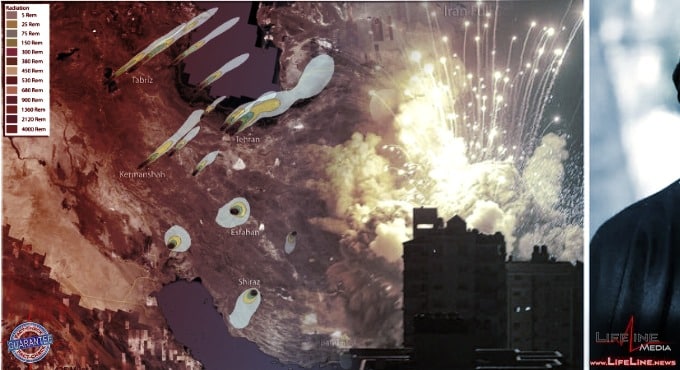How Israel’s Bold Airstrikes Could Ignite a Devastating Nuclear Conflict in the Middle East

FACT-CHECK GUARANTEE
Political Tilt
& Emotional Tone
The article presents Israel’s military actions and justifications prominently and includes supportive statements from a conservative U.S. figure, reflecting a center-right to conservative bias.
Generated using artificial intelligence.
The tone conveys the seriousness and fear associated with conflict escalation, resulting in a slightly negative emotional tone.
Generated using artificial intelligence.
Updated:
Read
In a dramatic escalation, the Middle East was rocked by open warfare between Israel and Iran on June 12–13, 2025.
Israel launched Operation Rising Lion, a sweeping air campaign that struck deep into Iranian territory, targeting not only nuclear sites but also missile bases, arsenals, and military command centers.
This marks a bold — and risky — departure from years of shadow conflict and covert operations. The Israeli strikes focused on facilities at Natanz and Isfahan, long suspected of housing key elements of Iran’s nuclear program.
Reports describe extensive damage to infrastructure and the deaths of several high-ranking Iranian personnel.
Israel did not stop at nuclear targets; its jets also hit missile launch pads and other military assets, sending a clear message that it is determined to cripple Iran’s ability to wage war or develop nuclear weapons.
Iran’s response was swift and fierce. Within hours, volleys of missiles targeted Israeli cities, with Tel Aviv bearing the brunt of the attack.
Sirens wailed across the city as residents scrambled for shelter. Israel’s Iron Dome missile defense system intercepted many rockets — but not all.
Initial reports suggest casualties were relatively low, but fear and anxiety gripped the population. The psychological toll was immediate, and emergency services were stretched to their limits.
Meanwhile, Iranian air defenses attempted to repel ongoing Israeli drone and jet incursions. Skirmishes raged over Iranian skies as both sides prepared for what could become a prolonged confrontation.
Escalation Risks and Global Reactions
Prime Minister Benjamin Netanyahu addressed his nation with steely resolve, vowing that Israeli operations would continue until Iran’s nuclear ambitions were “neutralized.” Years of failed diplomacy and clandestine sabotage have given way to open warfare.
Netanyahu made it clear that Israel believes it has run out of alternatives. U.S. President Donald Trump voiced strong support for Israel’s actions, warning Tehran against further escalation.
Trump referenced newly revealed intelligence about Iran’s alleged secret weapons program — dubbed the “Kavir Plan”— which has only added fuel to the fire. In response, Iranian officials announced an immediate halt to all negotiations with Washington, slamming the door on any diplomatic off-ramp for now.
The fighting threatens to spill beyond Israel and Iran’s borders. Rockets have already been fired from Syria into Israeli territory, while Hezbollah militants in Lebanon have launched attacks on northern Israel.
There are growing fears that Iran might pressure its regional allies to join the conflict, potentially igniting a much broader war across the Middle East. World leaders are watching with mounting alarm.
Some support Israel’s right to defend itself; others urge restraint and warn of catastrophic consequences if the fighting spirals out of control. The specter of a nuclear-armed Iran looms over every statement and press release.
For now, neither side appears willing to back down. The risk of miscalculation or accidental escalation is dangerously high.
As bombs fall and missiles fly, the region stands on a knife’s edge — a single misstep could trigger a conflict with repercussions far beyond the Middle East.
How this crisis unfolds will shape not only local destinies but also global security for years to come.

Join the discussion!
Be the FIRST to comment on ‘SHOCKING ISRAEL-Iran WAR: Middle East Faces Dangerous Nuclear Showdown’